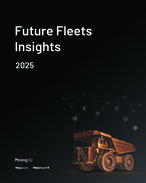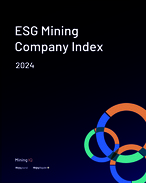This article is 3 years old. Images might not display.
The UK-based Natural Environment Research Council (NERC) has struck a deal with the Philippine Council for Industry, Energy and Emerging Technology to co-fund two research projects on sustainable mineral production.
The parties said the scope of the projects would be to investigate new sustainable technologies to limit the environmental hazards of mines tailings.
A team will be established to use emerging technology in geophysical tomography and remote sensing to monitor and understand tailings behaviour in 4D, enabling real-time monitoring of tailing storage facilities.
Additionally, they will also investigate new solvent methods to dissolve metals from modern and abandoned tailings, rehabilitate land, and reuse it for agriculture or wildlife.
A second team will evaluate legacy mining impacts and sustainable mining practices to develop policies and strategies to manage mineralised watersheds. Each team will receive approximately 15 million Philippine peso (US$296,997) and £1.2 million (US$1.6 million) over the next three years.
Beth House, head of productive environment at NERC, described the need to develop sustainable mineral production as "crucial" to meeting environmental goals and the growing demand for commodities used in green technologies.
Enrico Paringit, executive director at the Department of Science and Technology at the Philippine Council for Industry, Energy and Emerging Technology, said the mining industry remains "one of the biggest contributors to the economy in many parts of the world."
Paringit said that "active collaboration" will "shed light on the impacts of mining activities to the environment and find viable solutions and alternatives" to challenges.
This is the second such partnership between NERC and the Philippine Council for Industry, Energy and Emerging Technology to make mining operations more environmentally friendly, having agreed on five similar team projects in May 2021.
The Philippines is the fifth most mineral-rich country globally, with the largest copper-gold deposit in the world. While copper is the country's primary mineral, it also has large iron ore, lead, zinc and chromite, and smaller silver, nickel and mercury deposits.
























